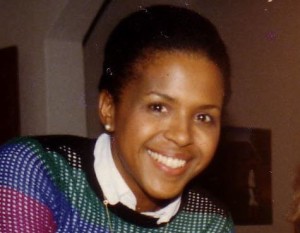
After meeting my birthfather Gil, I begin to love not only him, but also the culture and history of my ancestors.
Here’s an excerpt from Split at the Root: A Memoir of Love and Lost Identity.:
In Jamaica, so many years ago, Dr. Dezon was all set to tell me about shiploads of Caribs who were taken from the island of St. Vincent by the English and dumped on the Central American coast. At the time I was not interested in learning about Caribs; I was studying the Vienna Congress and listening to Waltzes, the rage of the time, because they were considered sensual. I could have learned something about my ancestors then, had I wanted to.
Like all people, mine created an environment that shaped their culture. They shared a colorful history and were a racial and cultural amalgam. I have the blood of three distinct races running through my veins. My dark skin and kinky hair rewards me with African ancestors, Old Man Reed had been a rather pale European man and, as a Carib, or Garifuna, I descend from Native Americans as well.
When I was 28, I traveled to Kenya on a photo shoot. I studied the faces of people there, hoping to find features similar to my own because I accepted my ancestral African genes that had a memory of vast plains, perhaps of the mighty Kilimanjaro, of stampeding elephants, galloping giraffe herds, of panthers, lions, hyenas, baboons, hippopotami. Africa was exotic to me, an exoticism I feared. Beautiful as it was, I mistrusted it. Those impeccably white coral beaches of Mombasa and Malindi on the Indian Ocean did not ring familiar. My African ancestors must have originated from another part of the continent.
Some of my ancestral memory is Garifuna. They were the feisty Arawaks whom neither the Spanish, nor later the British or the French with their advanced technology, managed to subjugate. They were the only island inhabitants who survived the European encounter by retreating to the remote, mountainous Windward Island of Saint Vincent. In the sixteenth century, a slaver capsized off St. Vincent’s coast. The Africans arrived with peaceful intentions and the natives on the island welcomed them. In time, word spread throughout the Caribbean that escaped slaves who reached St. Vincent could live there free. That is how the diminutive island became a haven for runaway slaves or maroons.
The Caribs were warriors, the Africans survivors. Upon seizing the island in the late seventeenth century, the British began a century-long effort to suppress and dominate the inhabitants. While the British could not subdue the fiercely independent population, they diminished their numbers to a few thousand. These they deported in 1797 to Roatan, a sandy island off Honduras. From there the survivors migrated to areas that were more hospitable. Settling on the northern fringe of Central America, they proceeded to decorate the Atlantic coast of Guatemala, Honduras, Nicaragua, and Belize with small communities of dark-skinned people.
Mine is the history of a people whose ancestors had great survival instincts and a fierce fighting nature. They had an ingrained sense for liberty and fairness, and demanded an independent, autonomous existence. They would not be subjugated. Die, at the hand of oppressors, yes; live enslaved, never! To be a descendant of Caribs, of a few people who had driven the English and French to frustration for over a century, who never relinquished their right to freedom, is a powerful legacy. My African ancestors had been tricked, imprisoned, enslaved, and still managed to escape their dismal fate by running away and living free among Caribs. My legacy is one of a people who, in the face of European technological supremacy and the blind greed that made them use it, fought to maintain their liberty, their dignity, their autonomy, and won. What a legacy! What joy to have found this unusual father: part Carib, part maroon, half European. A man who doesn’t back down from anyone!
Read more: Split at the Root: A Memoir of Love and Lost Identity (Kindle) or Split at the Root: A Memoir of Love and Lost Identity.
JAN

